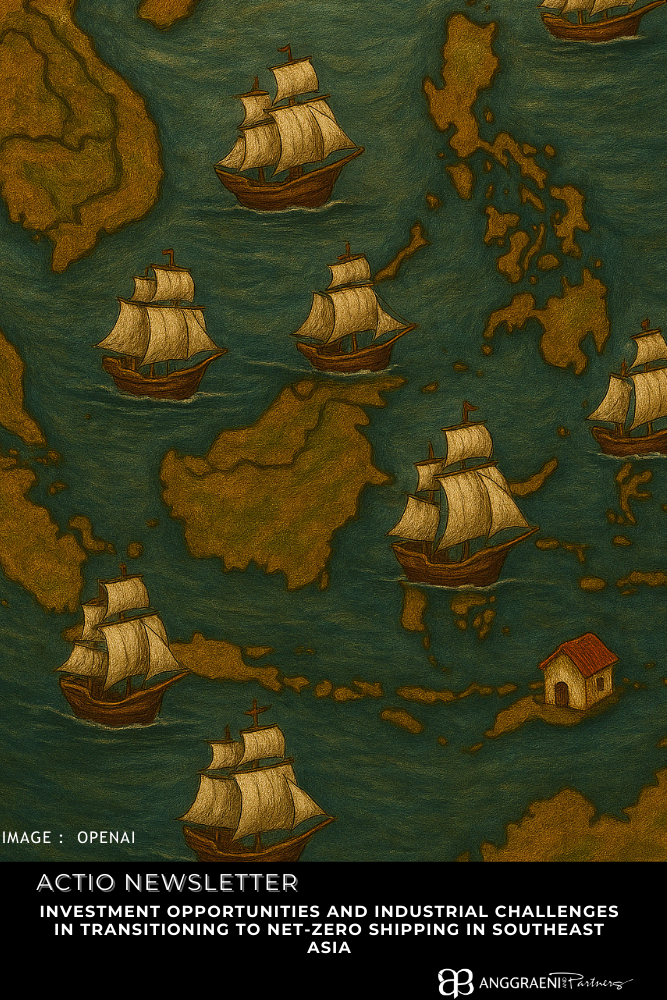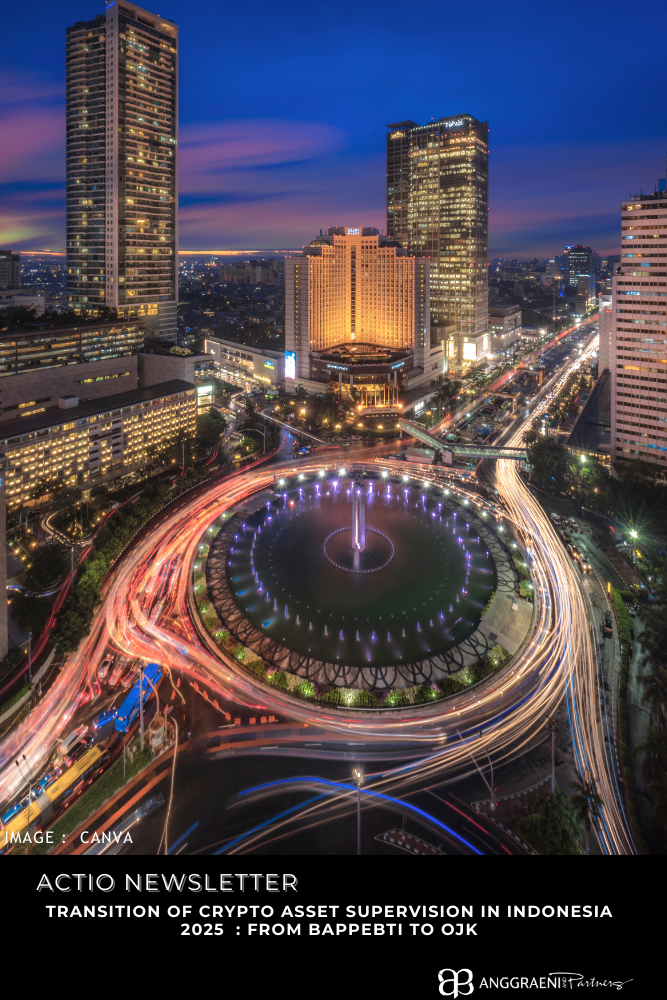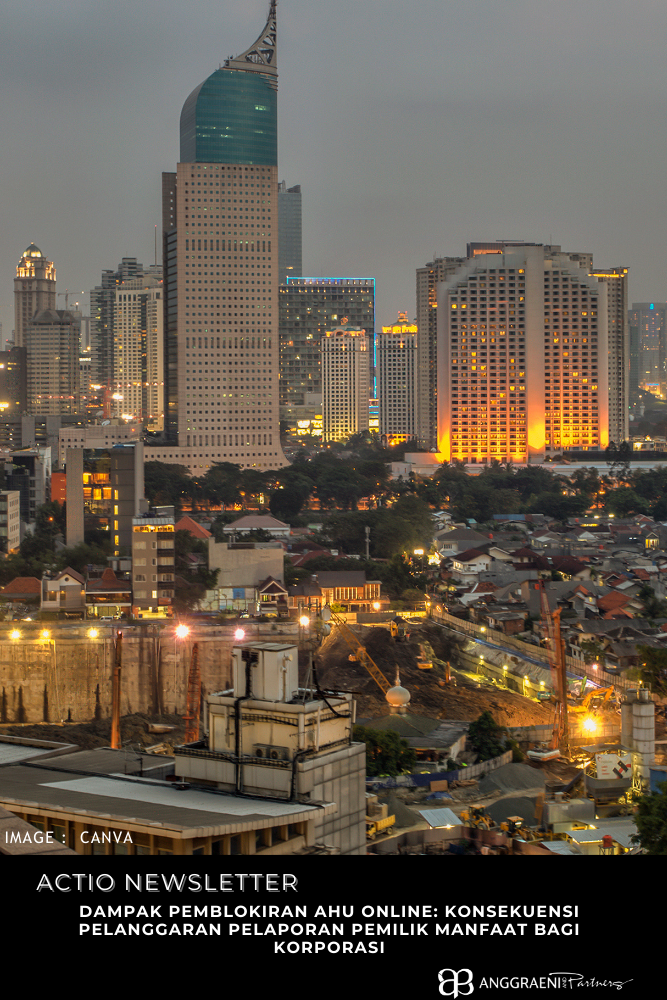Economic, Regulatory, and Environmental Perspectives on IMO Net-Zero Shipping Regulations in Indonesia and Southeast Asia
by Setyawati Fitrianggraeni and Orima Melati Davey
Overview
In April 2025, a legally binding framework was approved by the International Maritime Organization (IMO) to guide the shipping industry toward net-zero emissions by around 2050. This framework introduces a mandatory marine fuel standard and a greenhouse gas emissions pricing mechanism for all large oceangoing vessels over 5,000 gross tonnage—a group responsible for approximately 85 percent of global CO₂ emissions. Southeast Asia, with Indonesia playing a central role as a maritime crossroads, is expected to be significantly affected. This article examines the key economic, regulatory, and environmental aspects of this transition.
Economic Impact on the Maritime Sector
IMO’s net-zero measures are set to reshape shipping costs and trade dynamics in the region. A central component is a new carbon levy applied to ship emissions. Beginning in 2028, vessels that do not meet the new fuel standards will be required to pay a surcharge—around USD 380 per tonne for the highest-emitting emissions and USD 100 per tonne for additional emissions beyond a defined threshold. Such surcharges are intended to discourage the use of conventional heavy fuel oil. However, it is anticipated that revenues from this levy, projected to reach between USD 30 and 40 billion by 2030, will be reinvested to support the transition toward cleaner shipping practices, including subsidizing low- and zero-emission fuels. Over time, shipping companies may find cost efficiencies by optimizing routes and improving vessel efficiency, which could help mitigate increased operational costs.
Regulatory Alignment and Policy Adaptation
Southeast Asian nations, including Indonesia, are required to align their domestic regulations with the amended provisions of MARPOL Annex VI. This process involves updating national shipping standards and port state control procedures before the anticipated full implementation in 2027. Countries such as Indonesia, Malaysia, Singapore, Thailand, and the Philippines are reviewing their maritime laws and environmental policies to establish the necessary systems for monitoring fuel emissions, enforcing penalties for non-compliance, and managing carbon credit schemes. Regional coordination through forums like ASEAN Maritime Transport Working Group will likely be crucial to sharing best practices and establishing common frameworks for effective implementation.
Environmental Benefits and Climate Advantages
Reducing shipping emissions is a critical element in global efforts to combat climate change. The IMO framework is expected to facilitate at least a 20-percent reduction in shipping emissions by 2030 relative to 2008 levels, thereby contributing to the broader goals under the Paris Agreement. Cleaner fuel use and improved vessel efficiency are anticipated to reduce not only CO₂ levels but also lower emissions of sulfur oxides, nitrogen oxides, and particulate matter. Such improvements are projected to enhance air quality in port cities and along major shipping lanes, with additional benefits for coastal ecosystems, including coral reefs that support fisheries and tourism. Environmental gains are expected to increase over time with more stringent future targets and advanced technologies.
Conclusion
In summary, the economic adjustments, regulatory overhauls, and environmental improvements brought by the IMO net-zero regulations are likely to have considerable implications for Indonesia and the broader Southeast Asian maritime sector. Achieving a balanced transition will require coordinated national and regional policies as well as investments in technological innovations to support a sustainable shipping future.
References :
ASEAN Secretariat. (2024). ASEAN Transport Strategic Plan 2016–2025: Mid-Term Review. Available at asean.org (check for updates on maritime policy).
International Maritime Organization. (2023). 2023 IMO Strategy on Reduction of GHG Emissions from Ships. Adopted at MEPC 80, July 2023. Available at www.imo.org.[](https://www.imo.org/en/MediaCentre/PressBriefings/pages/Revised-GHG-reduction-strategy-for-global-shipping-adopted-.aspx) (http://www.imo.org.[](https://www.imo.org/en/MediaCentre/PressBriefings/pages/Revised-GHG-reduction-strategy-for-global-shipping-adopted-.aspx))
International Maritime Organization. (2023). Guidelines on Life Cycle GHG Intensity of Marine Fuels. Adopted at MEPC 80, July 2023. Available at www.imo Ascot (www.imo.org).[](https://www.imo.org/en/MediaCentre/PressBriefings/pages/Revised-GHG-reduction-strategy-for-global-shipping-adopted-.aspx) (http://www.imo.org).[](https://www.imo.org/en/MediaCentre/PressBriefings/pages/Revised-GHG-reduction-strategy-for-global-shipping-adopted-.aspx))
International Maritime Organization. (2025). Report of the Marine Environment Protection Committee on Its 83rd Session (MEPC 83), 7–11 April 2025. Available at www.imo.org (forthcoming or press release).
UNCTAD. (2023). Review of Maritime Transport 2023. United Nations Conference on Trade and Development. Available at unctad.org.
ASEAN Secretariat. (2024). ASEAN Transport Strategic Plan 2016–2025: Mid-Term Review. Available at asean.org (check for updates on maritime policy).
*Setyawati Fitrianggraeni serves as Managing Partner at Anggraeni and Partners in Indonesia and Assistant Professor at the Faculty of Law, University of Indonesia, while pursuing her PhD at the World Maritime University in Malmö, Sweden, where she leads a legal research team focused on Ocean Maritime Climate, including researchers Orima Melati Davey
DISCLAIMER :
This disclaimer applies to the publication of articles by Anggraeni and Partners. By accessing or reading any articles published by Anggraeni and Partners, you acknowledge and agree to the terms of this disclaimer:
During the preparation of this work, the author(s) may use AI-assisted technologies for readability. After using this tool/service, the author(s) reviewed and edited the content as needed for the purposes of the publication.
No Legal Advice: The articles published by Anggraeni and Partners are for informational purposes only and do not constitute legal advice. The information provided in the articles is not intended to create an attorney-client relationship between Anggraeni and Partners and the reader. The articles should not be relied upon as a substitute for seeking professional legal advice. For specific legal advice tailored to your individual circumstances, please consult a qualified attorney.
Accuracy and Completeness: Anggraeni and Partners strive to ensure the accuracy and completeness of the information presented in the articles. However, we do not warrant or guarantee the accuracy, currency, or completeness of the information. Laws and legal interpretations may vary, and the information in the articles may not be applicable to your jurisdiction or specific situation. Therefore, Anggraeni and Partners disclaim any liability for any errors or omissions in the articles.
No Endorsement: Any references or mentions of third-party organizations, products, services, or websites in the articles are for informational purposes only and do not constitute an endorsement or recommendation by Anggraeni and Partners. We do not assume responsibility for the accuracy, quality, or reliability of any third-party information or services mentioned in the articles.
No Liability: Anggraeni and Partners, its partners, attorneys, employees, or affiliates shall not be liable for any direct, indirect, incidental, consequential, or special damages arising out of or in connection with the use of the articles or reliance on any information contained therein. This includes but is not limited to, loss of data, loss of profits, or damages resulting from the use or inability to use the articles.
No Attorney-Client Relationship: Reading or accessing the articles does not establish an attorney-client relationship between Anggraeni and Partners and the reader. The information provided in the articles is general in nature and may not be applicable to your specific legal situation. Any communication with Anggraeni and Partners through the articles or any contact form on the website does not create an attorney-client relationship or establish confidentiality.
By accessing or reading the articles, you acknowledge that you have read, understood, and agreed to this disclaimer. If you do not agree with any part of this disclaimer, please refrain from accessing or reading the articles published by Anggraeni and Partners.
For further information, please contact:
P: 6221. 7278 7678, 72795001
H: +62 811 8800 427
Anggraeni and Partners, an Indonesian law practice with a worldwide vision, provides comprehensive legal solutions using forward-thinking strategies. We help clients manage legal risk and resolve disputes on admiralty and maritime law, complicated energy and commercial issues, arbitration and litigation, tortious claims handling, and cyber tech law.
S.F. Anggraeni
Managing Partner
Orima Melati Davey
Legal Researcher
Ocean-Maritime-Climate Research Group



